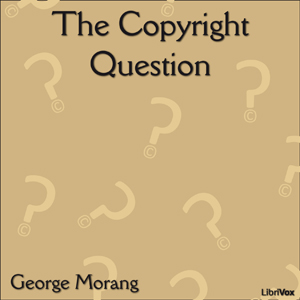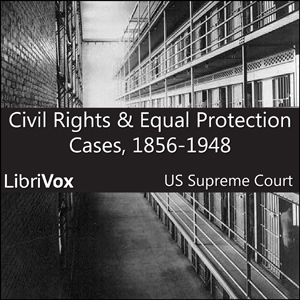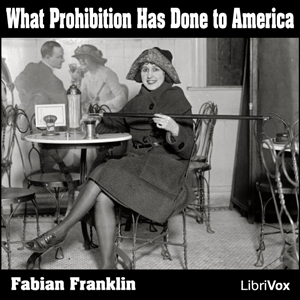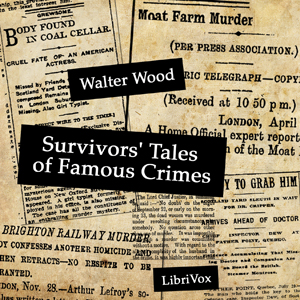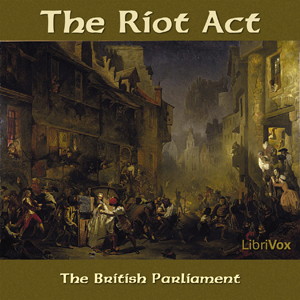
The Riot Act was passed by the British Parliament in 1714, the first year of the reign of George I, and came into effect in August 1715. This was a time of widespread social disturbance, as the preamble describes; the Act sought to put an end to this. A group of twelve or more people, “being unlawfully, riotously and tumultuously assembled”, would be read a proclamation; they must disperse within an hour, on pain of death. The same fate would befall anyone preventing the reading of the proclamation, or damaging buildings while on a riot. If the law enforcement officers happened to injure or kill a rioter, they were immune from prosecution. The reading of the proclamation, the wording of which is detailed in the Act, was the necessary first step before action could be taken against the rioters. This gave us the phrase “to read the riot act”, to give a stern warning or rebuke. The Act was repealed in Britain in 1973, but had long since fallen into disuse there. A version is still in force in Canada.
1 episodes
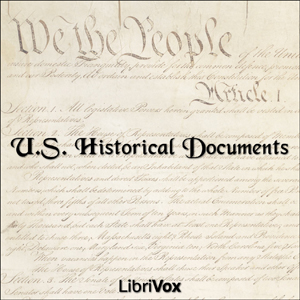
The Articles of Confederation: On November 15th, 1777 The Articles of Confederation became the first constitution of the United States, though not yet ratified by the thirteen original colonies. Ratification of the Articles took place almost three and a half years later on March 1st, 1781. The purpose of the articles was to create a confederation of sovereign states with a weak central government; thus allowing state governments to wield most of the power. It wasn’t long before the need for a stronger federal government was realized which led to the Articles being replaced by the United States Constitution. The Articles of Confederation is the common term for The Articles of Confederation and Perpetual Union.
The U.S. Constitution: The United States Constitution is the legal backbone of the United States of America and comprises the basic laws of the United States Federal Government. Delegates from twelve of the thirteen original colonies put the Constitution’s frame work together in May 1787 in Philadelphia. The Constitution defines the three branches of government and their jurisdictions; they are the Executive Branch (President/Vice President), Legislative Branch (Congress comprised of the Senate & House of Representatives), and the Judicial Branch (the Supreme Court). The need for three branches of government was to create a separation of powers so that not one person or group has full responsibilities, but that they’re spread out and each branch must refer to the other by a means of checks and balances.
The Declaration of Independence: The Declaration of Independence is a document that is the epitome of freedom and liberty. It was drafted by Thomas Jefferson in 1776 as a list of grievances against the King of England, George III. The Declaration expresses the conviction of Americans in a philosophy of self-evident truths of what individual liberty and freedom should be. The Declaration was the beginning to separation from England and the catalyst for a birth of a nation.
The Gettysburg Address: The Gettysburg Address is considered one of the greatest and most quoted speeches of a President throughout American history. President Abraham Lincoln gave his address on the battlefield at Gettysburg, Pennsylvania on November 19th, 1863. It was a few months after the battle at Gettysburg was over, the purpose of Lincoln being there was to consecrate a cemetery to the fallen Union soldiers of the Civil War. It is believed that Lincoln’s main goal of this opportunity was to fight for the United States as a united country and to express the equality of all under the law. (Summaries by Aldark)
4 episodes
This is a letter to the Toronto Board of Trade regarding Canadian copyrights. Morang requested an appearance before the Toronto Board of Trade but was denied. This is his letter in response. He wished to make clear his position. Summary by Esther.
1 episodes
Landmark United States Supreme Court decisions focusing on civil rights and equal protection between 1856 and 1948.
17 episodes
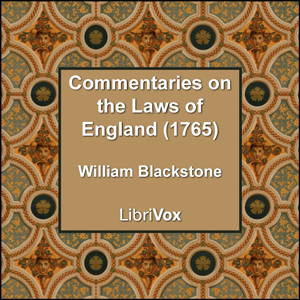
The Commentaries on the Laws of England are an influential 18th century treatise on the common law of England by Sir William Blackstone, originally published by the Clarendon Press at Oxford, 1765-1769.The Commentaries were long regarded as the leading work on the development of English law and played a role in the development of the American legal system. They were in fact the first methodical treatise on the common law suitable for a lay readership since at least the Middle Ages. The common law of England has relied on precedent more than statute and codifications and has been far less amenable than the civil law, developed from the Roman law, to the needs of a treatise. The Commentaries were influential largely because they were in fact readable, and because they met a need. The work is as much an apologia for the legal system of the time as it is an explanation; even when the law was obscure, Blackstone sought to make it seem rational, just, and inevitable that things should be how they were. (Summary from Wikipedia.)
49 episodes
In What Prohibition Has Done to America, Fabian Franklin presents a concise but forceful argument against the Eighteenth Amendment of the U.S. Constitution. Beginning in 1920, this Amendment prohibited the sale and manufacture of alcoholic beverages in the United States, until it was repealed in 1933. Franklin contends that the Amendment "is not only a crime against the Constitution of the United States, and not only a crime against the whole spirit of our Federal system, but a crime against the first principles of rational government." Writing only two years after Prohibition began, he correctly predicts many of its disastrous consequences, such as runaway bootlegging and organized crime. The book is both a passionate defense of liberty, and a reminder to Americans of the perils of surrendering it. (Summary by Leon Mire)
11 episodes
In this anthology of true crime tales, editor Walter Wood interviews those who were touched by the crimes recounted, sometimes as an acquaintance of the deceased or criminal or in the course of their professional duties. This work provides a personal look at some of the most sensational crimes and scandals of late 19th and early 20th century Britain. (Summary by Nullifidian)
20 episodes
On 15th June 1215 the Magna Carta was sealed under oath by King John at Runnymede, on the bank of the River Thames near Windsor, England. 2015 is the 800th anniversary of this charter, which led eventually to the rule of constitutional law in England and beyond. This book of essays on various aspects of the Charter was written by distinguished academics for the Royal Historical Society to commemorate the 700th anniversary of Magna Carta. N. B. The readers in this project are not scholars of mediaeval Latin or French. Where there are passages or phrases of Latin and Old French, we have endeavoured to make them clear, but make no claim to authentic pronunciation. (Summary by Ruth Golding)
19 episodes

In 1895 Oscar Wilde was convicted of gross indecency and sentenced to two years' hard labor. This account of his two trials was compiled from the original shorthand court reports by an anonymous author. While a more complete account of the trial was published several years later, it omitted the more 'sensational' exchanges. This shorter version was clearly intended for a more prurient reader. In it we hear Wilde's famous defence of "the love that dare not speak its name", and see the evidence mount as a succession of attractive young men step into the witness box to tell their tales. - Summary by Rob Board
Cast
Narrator: Rob Board
Oscar Wilde: Edward Kirkby
Alfred Taylor: Ted Delorme
Mr. C.F. Gill: Beth Thomas
Sir Edward Clarke: Kristin Gjerløw
Mr. JP Grain: Michele Fry
Sir Frank Lockwood: Elizabeth Klett
Mr. Horace Avory: Oxenhandler
Mr. Hall: Joseph Tabler
Mr. Justice Charles: Richard Shipp
Mr. Justice Wills: Zames Curran
The Foreman of the Jury: David Olson
Frank Atkins: Eden Rea-Hedrick
Edward Shelley: Newgatenovelist
Charles Parker: Sandra Schmit
Alfred Wood: Rotgold
Sidney Mavor: Anna Simon
Hugues Rebell: David Bushhouse
Arthur Symons: Mark Chulsky
Baron Macauley: Apneia
Octave Mirbeau: Herman Roskams
Newspaper reporter: Jessie Yun
John Milton: Hannoria
Edited by: Rob Board
8 episodes
Detective-Mystery stories based on real cases solved by government agents. Created initially in 1865, the U.S. Secret Service continued to expand over the years, particularly following the assassination of President McKinley in 1901. The episodes in this compilation are comprised of authentic stories, dramatized, while remaining true to the actual incidences. - Summary by Roger Melin
24 episodes
"This Convention represents the fourth updated version of the Geneva Convention on the wounded and sick following those adopted in 1864, 1906 and 1929. It contains 64 articles. These provide protection for the wounded and sick, but also for medical and religious personnel, medical units and medical transports. The Convention also recognizes the distinctive emblems. It has two annexes containing a draft agreement relating to hospital zones and a model identity card for medical and religious personnel." - Summary by International Committee of the Red Cross
Please note, this recording DOESN'T include the 3 protocols.
30 episodes
The Constitution is the charter of government and the supreme law of the United States of America. It was signed by delegates to the Constitutional Convention in Philadelphia, Pennsylvania, on September 17, 1787. The first 10 amendments, known as the Bill of Rights, were ratified together in 1791. Amendments 11 through 27 were ratified separately from 1795 through 1992. (Summary by Laurie Anne Walden)
3 episodes

The English Constitution is an extremely accessible work of political and legal science by Walter Bagehot, first published in serialized form in 1865-7. While some of his observations on the English system no longer apply to the modern constitutional organization of the United Kingdom, his philosophical basis is for the most part as sound as ever. For instance, Bagehot observes in the chapter on the Monarchy that, It is often said that men are ruled by their imaginations; but it would be truer to say they are governed by the weakness of their imaginations. The nature of a constitution, the action of an assembly, the play of parties, the unseen formation of a guiding opinion, are complex facts, difficult to know and easy to mistake. But the action of a single will, the fiat of a single mind, are easy ideas: anybody can make them out, and no one can ever forget them. When you put before the mass of mankind the question, "Will you be governed by a king, or will you be governed by a constitution?" the inquiry comes out thus—"Will you be governed in a way you understand, or will you be governed in a way you do not understand?" The issue was put to the French people; they were asked, "Will you be governed by Louis Napoleon, or will you be governed by an assembly?" The French people said, "We will be governed by the one man we can imagine, and not by the many people we cannot imagine". - Summary by Carolin
23 episodes
"England Since Waterloo" by Sir John Arthur Ransome Marriott (1859-1945) was first published in 1913 and went through many editions. The author taught history at Worcester College, Oxford for thirty-six years and served as a Conservative member of Parliament for fifteen. "England Since Waterloo" begins with the defeat of Napoleon who, Marriott writes, was impotent "to assail English power at sea, foiled in his attempt to ruin her commerce...overwhelmed under Russian snows, and finally conquered by the genius of Wellington." He portrays the people and the events of nineteenth century Britain, ending his narrative with the death of Queen Victoria in 1901. We see the "ascendancy of Science and Industry...the advent of Democracy...and the extension of Empire" in this panoramic survey of reform at home and imperialism abroad. - Summary by Pamela Nagami
52 episodes

The Royal Irish Constabulary (RIC, simply called the Irish Constabulary 1836–67) was the armed police force of the United Kingdom in Ireland from the early nineteenth century until 1922. About seventy-five percent of the RIC were Roman Catholic and about twenty-five percent were of various Protestant denominations, the Catholics mainly constables and the Protestants officers. In consequence of the Anglo-Irish Treaty, the RIC was disbanded in 1922 and was replaced by the Garda Síochána in the Irish Free State and the Royal Ulster Constabulary in Northern Ireland. This book of stories about the RIC, written by a staunch Crown Loyalist, was published a year before its dissolution. A few terms: Sinn Fein were insurgents fighting to establish an independent Irish state; Volunteers were local members of the Sinn Fein; Black and Tans were a force of temporary constables formed to assist the RIC; Auxiliaries or Auxiliary Cadets or merely Cadets were another group in aid of the RIC; "gone to America" was a euphemism usually meaning death (unless the context showed that it really meant emigration); "Castle" meant Dublin Castle off Dame Street, Dublin, Ireland, was until 1922 the seat of the United Kingdom government's administration in Ireland. ( david wales)
21 episodes

The idea that in the library of nearly every practitioner in the professions of both Physic and Law there has been for some time a small gap among the books, which could be filled by a little work like this now submitted, has induced the author to prepare and publish the following pages.
While it is hoped that this little work will prove of use to the members of the Legal and Medical Professions, it is intended to be suggestive rather than exhaustive—a primer not an encyclopædia; and it is not expected that it will obviate the necessity for frequent conferences between physicians and lawyers whenever, in the practice of either, questions arise requiring the experience of the other.
In most cases the very words of the judges and reporters have been used, and if any expressions are noticed that may be deemed over strong it will be found that they are the words of others: the author’s aim has been rather to act as an humble compiler and citer of cases, than to obtrude opinions or theories of his own.
Brief chapters on Dentists and Druggists have been given because of the intimate connection between these gentlemen and the members of the medical profession.
With great diffidence this book is committed to the tender mercies of the critics of these two learned professions—to those who can so effectually wield the pen, the tongue and the scalpel. - Summary by Robert Vashon Rogers - from the preface
15 episodes

For those who like courtroom drama, here are Ingersoll’s Opening and Closing arguments on the most famous trials of his career--the Star Route Trials which stretched over 2 years, revealing high government corruption in the U.S. Post Office system's westward expansion. Ingersoll was lead counsel for the defense. Compiled from countless reports and endless conflicting details (much like untangling a huge pile of fishing line), it was said that his prodigious memory of the minutest details without referring to the record, knowledge of the law, impregnable logic, forensic power, lucidity, almost infallible judgment, remarkable ability as an orator that kept the courtroom spellbound; his uniform fairness, tact, candor, humor, and matchless summing up, are vividly captured in these transcripts. "He absolutely made no mistakes", said one federal judge. This volume also contains 3 shorter trial summations: the Munn Trial, the Davis Will Case, and the Russell Case. This is the entirety of Volume X, Dresden Edition, pub. 1900. ~ Summary by Michele Fry
44 episodes
William Holden Hutton (1860-1930) was a British historian and Dean of Winchester Cathedral. In this slim volume, Hutton writes of the long period of feudal anarchy following the death of King Henry I in 1135, during which Henry's implacable daughter, Mathilda, battled the ineffectual King Stephen. Hutton then describes the turbulent reign of the great King Henry II, the reigns of Kings Richard, John, Henry III, and of the first two Edwards, rulers who whether weak or strong, rigid or resourceful, were grimly opposed by their powerful barons. - Summary by Pamela Nagami
8 episodes
"[This book] is written primarily for the use of those students of the law who are desirous of laying a scientific foundation for their legal education ; yet I hope that it will not be found destitute of interest by those lawyers whose academic studies lie behind them, but who have not wholly ceased to concern themselves with the theoretical and scientific aspects of the law. Further, a great part of what I have written is sufficiently free from the technicalities and details of the concrete legal system to serve the purposes of laymen" (From the preface)
39 episodes
In 1827 Thomas Southwood-Smith published The Use of the Dead to the Living, a pamphlet which argued that the current system of burial in the United Kingdom was a wasteful use of bodies that could otherwise be used for dissection by the medical profession. "If, by any appropriation of the dead, I can promote the happiness of the living, then it is my duty to conquer the reluctance I may feel to such a disposition of the dead, however well-founded or strong that reluctance may be". Southwood-Smith's lobbying helped lead to the 1832 Anatomy Act, the legislation which allowed the state to seize unclaimed corpses from workhouses and sell them to surgical schools. While this act is credited with ending the practice of grave robbery, it has also been condemned as discriminatory against the poor. Thomas Southwood- Smith (1788 – 1861) was an English physician and sanitary reformer. - Summary by Wikipedia and David Wales
5 episodes

These cases involved questions that came before the Supreme Court that needed answers. The questions in order of appearance in this project are as follows.
Does Congress have the power to pass laws that override the Constitution? What shall we do about the international slave trade? In what respect does the right of an author differ from that of an individual who has invented a most useful and valuable machine? Is there any difference between property in slaves and other property? Can the House of Representatives impeach the President? Why were women excluded from suffrage in nearly all the states by the express provision of their constitutions and laws? Is a tomato a fruit or a vegetable? What is double jeopardy? What shall we do about a child born in the United States who has parents who are subjects of a different nation? Are lotteries legal? Should motion pictures be censured? Is speech protected under the First Amendment during wartime? Why did we stop saying the pledge of allegiance? Where does the idea of "one person, one vote" come from? How does the First Amendment protect us from a claim of defamation or libel? Is electronic eavesdropping legal? Why are churches tax free institutions? How was the decision to allow abortions made?
28 episodes
"The law perverted! The law—and, in its wake, all the collective forces of the nation. The law, I say, not only diverted from its proper direction, but made to pursue one entirely contrary! The law becomes the tool of every kind of avarice, instead of being its check! The law guilty of that very inequity which it was its mission to punish! Truly, this is a serious fact, if it exists, and one to which I feel bound to call the attention of my fellow-citizens." —Frédéric Bastiat
10 episodes


